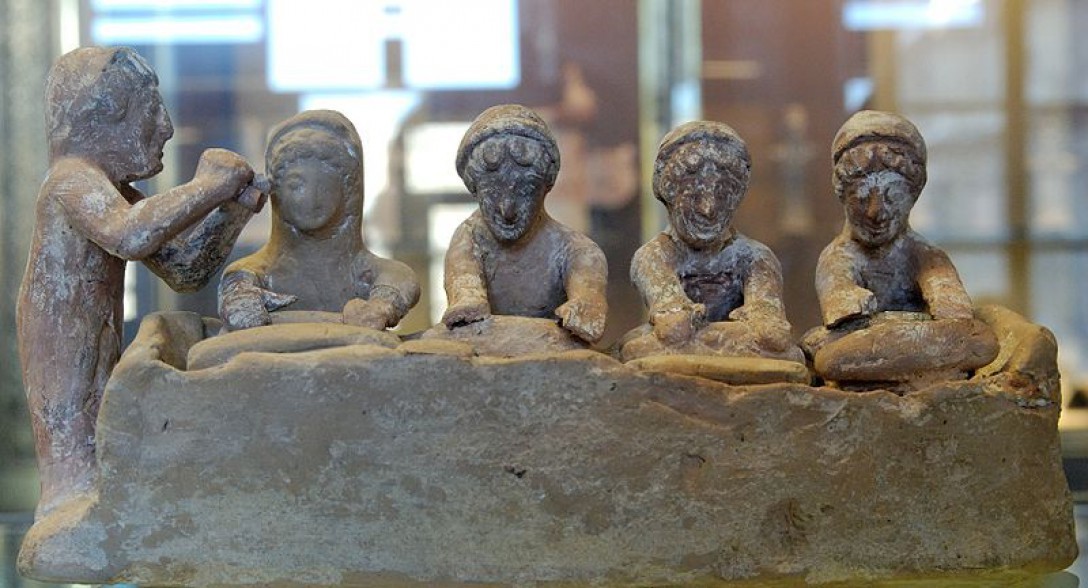- During the festival of Artemis Orthia the young Spartans were encouraged to steal cheese, without getting caught, from the altar of the godess.
- Every month Spartans sent to the common messes (phiditia) 10 Aigina obolus to buy meat, 1 1/5 kilograms of figs, 39 litres of wine, 77 litres of barley and 3 kilograms of cheese [(Dicaearchus) Athenaeus, 12]. Those who could not contribute were not allowed to retain their rights of citizenship.
- Cheese and onions were symbols of military life. In Peace (Aristophanes, vs. 1127-1129), the chorus, celebrating the end of war, sings ‘Oh! joy, joy! no more helmet, no more cheese nor onions!’
- The Olympic athletes trained on a diet consisting mostly of cheese.
- Cheese was part of the byzantine emperors’ diet during their campaigns against the enemies of Byzantium.
During the ancient and byzantine years a great deal of cheese was eaten· on their own οr cooked in pies, in sauces, as one of the many ingredients of a food, to add a hind of its flavor· in cakes· as appetizer or as dessert. For instance, cheese accompanied with fruits and honey has a continuous place on the table.
Of course, cheese of best quality was served during the luxurious banquets. Black bread and cheese of bad quality used to feed the poor and the hungry.

